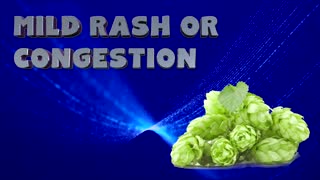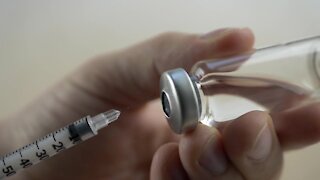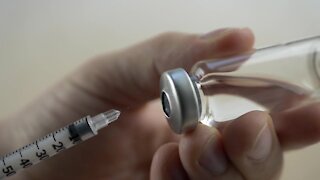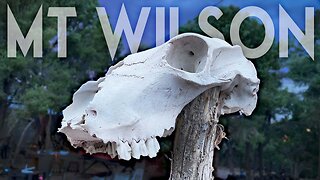Alopecia Areata Natural Treatments | What is Alopecia
#Alopecia Areata, #Natural Treatments for Alopecia Areata
About 4.6 million people in the United States struggle with alopecia areata, an autoimmune disorder that occurs when the immune system mistakenly attacks your hair follicles,
and as a result, causes hair loss on the scalp and various parts of the body.
While there is currently no cure for alopecia areata, (and no medications approved for its treatment)
some people turn to a range of natural treatments and remedies in an effort to control the condition.
Some Research on Natural Treatments Are As Follows:
In a report published in the American Journal of Clinical Dermatology in 2010,
scientists sized up the available research on the use of complementary and alternative remedies and therapies in the treatment of alopecia areata.
However, in their analysis of the 13 studies selected for the review,
The authors found that no study was well-designed enough to provide "robust evidence" of the benefit of any type of complementary and/or alternative approach in the management of this condition.
Still, there's some evidence that certain natural treatments may benefit people with alopecia areata.
These treatments include the following.
Korean Red Ginseng
A form of Panax ginseng, Korean red ginseng shows promise in the treatment of alopecia areata.
In a preliminary study published in the Journal of Ginseng Research in 2012, scientists observed that Korean red ginseng may help promote hair growth in people with alopecia areata.
Hypnosis
A number of small studies indicate that hypnosis may be beneficial for people with alopecia areata,
although the benefits may be in well-being rather than in hair regrowth, which was found in some studies but not others.
A study published in the Swedish journal Acta Dermato-Venereologica in 2011 also found that hypnosis may benefit people with alopecia areata.
For this study, 21 people with alopecia areata received 10 sessions of hypnosis over a six-month period.
By the study's end, participants showed improvements in several markers of psychological well being, including anxiety and depression.
Next, applying onion juice or garlic gel to parts of the head or body affected by alopecia areata may help promote hair growth.
Small studies have found these to be effective, but more research is needed.
Aromatherapy
In a small study published in Archives of Dermatology in 1998,
An aromatherapy massage treatment involving a blend of essential oils of thyme, rosemary, lavender, and cedarwood appeared to aid in the treatment of alopecia areata for some people.
These essential oils have been used traditionally for the treatment of hair loss.
However, much more research is needed to determine if they are effective, or whether the massage itself is associated with hair regrowth.
Acupuncture
In a preliminary study published in Acupuncture in Medicine in 2013,
Tests on mice demonstrated that electro-acupuncture may inhibit certain alopecia-related changes in skin cells.
Electro-acupuncture is a form of acupuncture in which needles are attached to a device that produces continuous electric impulses and then placed at specific points on the patient's body.
Stress Management
Stress may play an important role in triggering episodes of alopecia areata.
Although it's possible that practicing stress management techniques could offer some protection against episodes of alopecia areata,
there's currently a lack of studies testing the use of such techniques in alopecia areata management.
The Takeaway
While further clinical trials are needed, certain holistic therapies or remedies may be helpful to some degree.
If you're thinking of trying any type of natural treatment for alopecia areata,
make sure to consult your healthcare provider first to weigh the pros and cons and discuss whether it's appropriate for you.
-
 1:47
1:47
Remedies 4 You
8 days agoWill You Still DrinkCoke After Watching This- WARNING! You Can't Unsee It
2122 -
 10:22
10:22
trobinson369
3 years agoTOP 15 HERBS for ANXIETY/STRESS - natural treatments for stress & anxiety
68 -
 3:04
3:04
WXYZ
3 years agoNext generation COVID treatments: What experts look to change, improve
1113 -
 3:04
3:04
WXYZ
3 years agoNext generation COVID treatments: What experts look to change, improve
42 -
 LIVE
LIVE
LumpyPotatoX2
53 minutes agoSub-Sunday on Rumble - #RumbleTakeover
158 watching -
 LIVE
LIVE
Major League Fishing
4 days agoLIVE Bass Pro Tour: Stage 5, Day 4
531 watching -
 26:04
26:04
iamLucid
22 hours agoVideo Game Piracy is Unstoppable
3.71K15 -
 16:31
16:31
GeekyNerdyTechy
1 day agoZHIYUN Fiveray M20C Combo Light Review & Tutorial
11.9K5 -
 8:29
8:29
ParisDemers
21 hours agoThe Kratos/God Of War Workout Program (His Real-Life Training)
11.8K3 -
 16:14
16:14
CarlCrusher
16 hours agoSkinwalker's Evil Twin - Beyond Skinwalker Ranch Behind the Scenes Season 1 ep 2
13.5K5